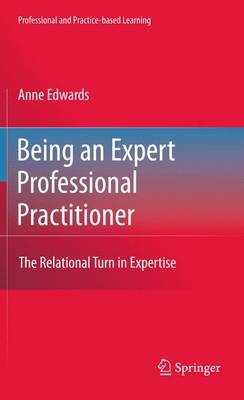Professional and Practice-based Learning
1 primary work
Book 3
Professionals deal with complex problems which require working with the expertise of others, but being able to collaborate resourcefully with others is an additional form of expertise. This book draws on a series of research studies to explain what is involved in the new concept of working relationally across practices. It demonstrates how spending time building common knowledge between different professions aids collaboration.
The core concept is relational agency, which can arise between practitioners who work together on a complex task: whether reconfiguring the trajectory of a vulnerable child or developing a piece of computer software. Common knowledge, which captures the motives and values of each profession, is essential for the exercise of relational agency and contributing to and working with the common knowledge of what matters for each profession is a new form of relational expertise.
The book is based on a wide body of field research including the author's own. It tackles how to research expert practices using Vygotskian perspectives, and demonstrates how Cultural Historical and Activity Theory approaches contribute to how we understand learning, practices and organisations.
The core concept is relational agency, which can arise between practitioners who work together on a complex task: whether reconfiguring the trajectory of a vulnerable child or developing a piece of computer software. Common knowledge, which captures the motives and values of each profession, is essential for the exercise of relational agency and contributing to and working with the common knowledge of what matters for each profession is a new form of relational expertise.
The book is based on a wide body of field research including the author's own. It tackles how to research expert practices using Vygotskian perspectives, and demonstrates how Cultural Historical and Activity Theory approaches contribute to how we understand learning, practices and organisations.
